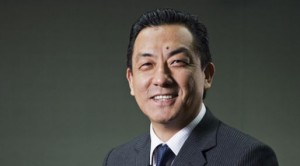Seeking Sustainable Water Services in Peru

This blog post has been written by Fernando Momiy Hada/Chairman of the Board of Directors of the National Inspection Office for Sanitation Services (Superintendencia Nacional de Servicios de Saneamiento SUNASS).
Steady urban population growth, the effects of climate change, the risks posed by natural disasters, and the impact of water source and reservoir contamination are calling for greater effort in the area of regulatory management and the involvement of water and sewage service operators in this process. However, many more institutions are also involved, including the people themselves, whose commitment and active participation will be necessary for the sustainable provision of this vital service.
SUNASS, as the sanitation regulatory entity in Peru, is cognizant of the fact that if we do not tackle these challenges comprehensively, policy or regulatory improvement or economic and financial models will not be able to guarantee the sustainable provision of water and sewage services in the country. Our effort to implement Compensation Mechanisms for Ecosystem Services (Mecanismos de Retribución de los Servicios Ecosistémicos (MRSE)* in order to ensure that sanitation service providers can finance projects that help preserve the consistency, quality, and quantity of the water sources reveals the need for comprehensive management of water resources.
We therefore commend the Ministry of Housing, Construction, and Sanitation—the sector’s governing body—for approving the regulatory framework for the use of groundwater by turning over its infrastructure (wells and underground tunnels) to the sanitation service providers for maintenance and conservation and tasking SUNASS with responsibility for approving rate-setting methodology. This progress is being made in the context of the challenges arising from the ground water depletion being observed in Lima and Callao, which runs the risk of leaving the population without water reserves, should changes in the water cycle occur in the watersheds that supply water to the cities.
SUNASS approved the implementation of the system revolving around rate subsidies for potable water, which will pave the way for optimization of the incentives for the development of the service by residents.
Taking stock of water resources in the design of the country’s development strategy is the first step to guarantee future growth. Water is critical to all economic activities. For this reason, if we do not approach our development taking water into account—how we will use it and distribute it and how much we will develop it—we will not be able to lay the groundwork for sustainable development in the future.
In our quest for sustainable water resources, we have received support from such key institutions as the 2030 Water Resources Group (WRG), which included us in working groups and opened the doors of its Board of Directors so as to seek consensus among national authorities, NGOs, private enterprises, and international assistance entities, all assembled as one group with the aim of contributing to crafting a joint vision and model for water use, which Peru needs.
*Compensation mechanisms for ecosystem services are financial mechanisms intended to conserve, recover, or use, in a sustainable manner, water source ecosystems through the provision of incentives to residents to carry out these activities.
